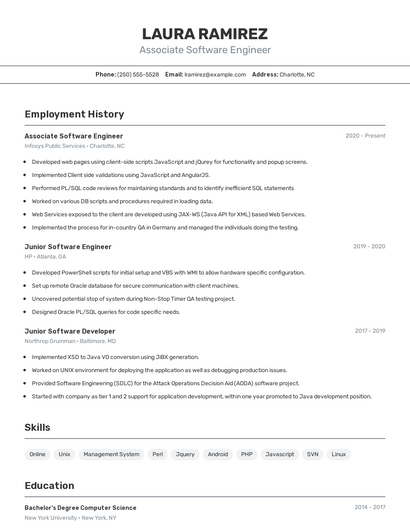
Identifying and analyzing opportunities for a business is vital. This allows you to avoid failure, and helps you implement innovative ideas and improvements that will help improve your business. Also, opportunities offer the chance to solve problems or provide customers with better value propositions. They can also help the business improve its performance and create efficient business models. It is crucial to identify and seize opportunities before they are too late.
SWOT analysis
It's a good idea to do a SWOT assessment if your business is in the process of being run. This type of analysis is a strategic planning tool that examines a business's strengths, weaknesses, opportunities, and threats. It can be used to guide your company toward more profitable strategies. An independent SWOT analysis can give you advice and suggestions on where to focus your efforts. A typical SWOT analysis has a four-sided quadrant, each quadrant representing one of four elements: threats or opportunities, weaknesses, and strengths. This format can help you quickly determine where you are in relation your competitors. Make sure that all of the points in each quadrant represent a balance between your strengths and weaknesses.

Characteristics of a good opportunity
Good opportunities for businesses have some common characteristics. They are relevant for the market and situation in which it is being considered. They have the potential for growth and to be used in multiple industries. They help businesses achieve their goals and can generate returns on investments. In addition, they make use of available resources and are feasible.
Relevance
Opportunities are the basis of action. They allow businesses to innovate and improve their performance. Opportunities can exist in existing problems on the market, as well as new problems created by current trends.
Possibilities
Analyzing the financials of a company can determine the feasibility of a new business. This involves creating a detailed business plan and financial projections over at least three years. A rough cut of this plan can help determine whether the business is worth developing a more elaborate business plan. Also, calculate your breakeven sales level. This is the amount of sales required to cover your costs and not earn a profit.
Strengths
Your company's strengths should be known by business owners. The things that a business does well can help you stand out from your competitors. These can be assets, capabilities, accomplishments, or unique selling propositions. They can also represent weaknesses. Your strengths and vulnerabilities can change with the business's growth and evolution. You cannot change your weaknesses forever, but you can adapt to new challenges while using your strengths to your advantage.

Weaknesses
To be successful in building a company, it is essential to identify its strengths and drawbacks. Employees will only be able to achieve sub-optimal results if they lack the right tools, equipment and processes. Therefore, identifying weaknesses and enhancing them will help you to create a better map of your business.
FAQ
How do I become a successful consultant?
It is important to identify an area of passion. Next, you need to establish relationships. It is crucial to learn about your clients and understand their needs. You must also deliver results.
While you don’t necessarily have to excel at every task, you should be better than all the rest. It is important to be passionate about what you do. It doesn't suffice just to say "I'm going be a Consultant." It's important to believe in your abilities and do what you love.
What is a consultant and what are their responsibilities?
Consultants provide services for others. It's not a job title. A consultant is a role that helps others achieve their goals. This is done by helping others understand their options and making the right decisions.
Consultants have the ability to solve any problems or challenges that may arise from projects. Consultants can also offer advice and guidance regarding how to implement these solutions.
Consulting should be able answer any questions related to technology, finance, law and management.
Do I need legal counsel?
Yes! Yes. Many consultants will create contracts for clients without seeking legal advice. This can lead to issues down the road. For example, what happens if the client terminates the agreement before the consultant's completion date? What happens if the contract stipulates that the consultant must meet certain deadlines?
To avoid any problems, it's best that you consult a lawyer.
Consulting is it a job?
Consulting isn't just a career option for those who want to earn quick money. It's also a great place to gain valuable skills and build a foundation you can use in your future work.
Consulting can offer many career opportunities, such as project management and business development. There are many projects you could be involved in, from small start-ups all the way up to large-scale multinational corporations.
Consulting gives you the chance to grow and develop your skills. This could include learning how to manage teams, write proposals, manage budgets and analyze data.
Do I have to pay tax on consulting income
Yes, you will need to pay tax on your consultancy profits. It depends on how much income you make per year.
If you're self-employed, you can claim expenses on top of your salary, including rent, childcare, and food.
However, you cannot deduct interest payments from loans, vehicle repairs, or the cost for equipment.
If you earn less than PS10,000 per year, 25% can be claimed back.
But even if you're earning more than this threshold, you might still be taxed depending on whether you're classed as a contractor or employee.
Employees are generally taxed through PAYE (pay as you earn) and contractors through VAT.
What jobs are available as consultants?
Consulting requires an in-depth understanding of operations and business strategy. Understanding how businesses work and their place in society is also essential.
You must have excellent communication skills as well as the ability to think critically in order to be a consultant.
Consultants must be adaptable because they may be asked to do different tasks at different times. They must be flexible and able to change directions quickly if needed.
They should be able to travel extensively for clients. This type of work can take them all over the world.
They also need to be capable of handling stress and pressure. Consultants might sometimes have to meet tight deadlines.
As a consultant, you may be expected to work long hours. You may not get overtime pay.
Statistics
- So, if you help your clients increase their sales by 33%, then use a word like “revolution” instead of “increase.” (consultingsuccess.com)
- "From there, I told them my rates were going up 25%, this is the new hourly rate, and every single one of them said 'done, fine.' (nerdwallet.com)
- According to statistics from the ONS, the UK has around 300,000 consultants, of which around 63,000 professionals work as management consultants. (consultancy.uk)
- On average, your program increases the sales team's performance by 33%. (consultingsuccess.com)
- Over 62% of consultants were dissatisfied with their former jobs before starting their consulting business. (consultingsuccess.com)
External Links
How To
How To Find The Best Consultant?
First, ask yourself what kind of consultant you are looking for. You should know exactly what your expectations are before you start searching for someone. You should make a list of all the things you need from a consultant. This could include things like; professional expertise, technical skills, project management ability, communication skills, availability, etc. Once you've listed out these requirements, then you may want to consider asking some friends or colleagues who they would recommend. Ask them what their experience with consultants was like and how they compare to yours. If you don't have any recommendations, try doing some research online. There are many websites, such as LinkedIn, Facebook, Angie's List, Indeed, etc., where people post reviews of their previous work experiences. Look at the ratings and comments left by others and use this data as a starting point for finding potential candidates. Once you have a shortlist, be sure to contact potential candidates directly to schedule an interview. Talking through your requirements during the interview is a good idea. Ask them questions about how they can assist you in achieving those goals. It doesn’t matter if the person was recommended to you; it matters that they understand your business goals, and can show you how they can help.